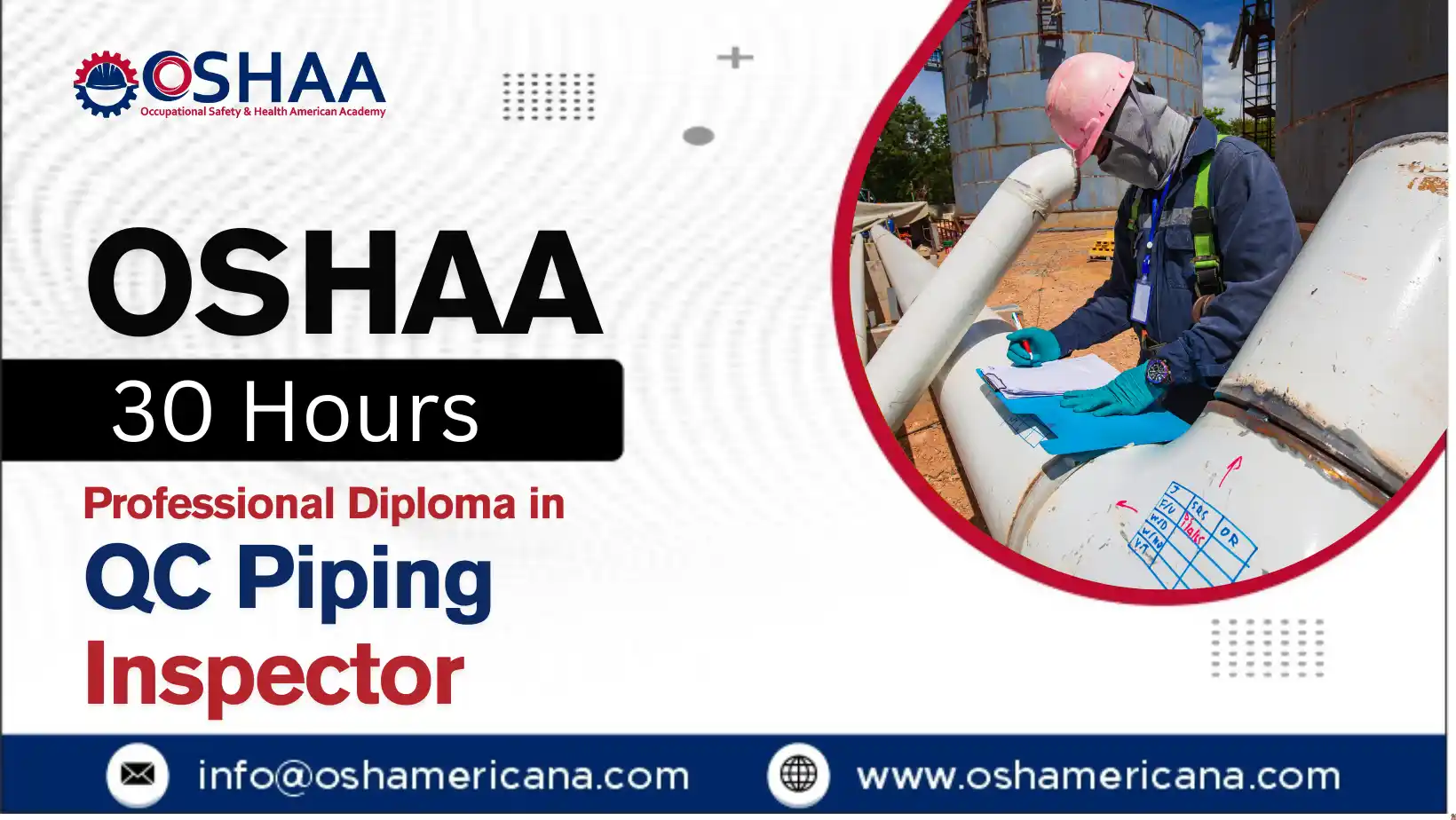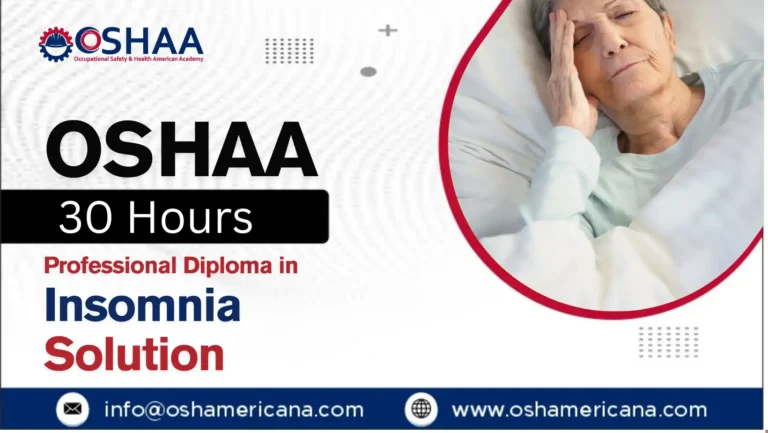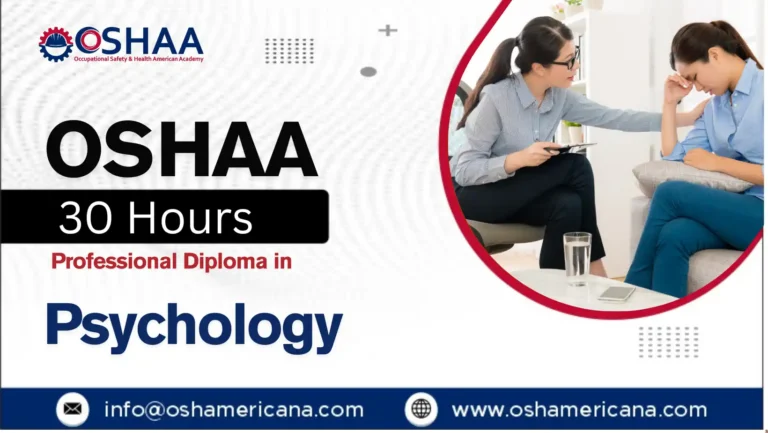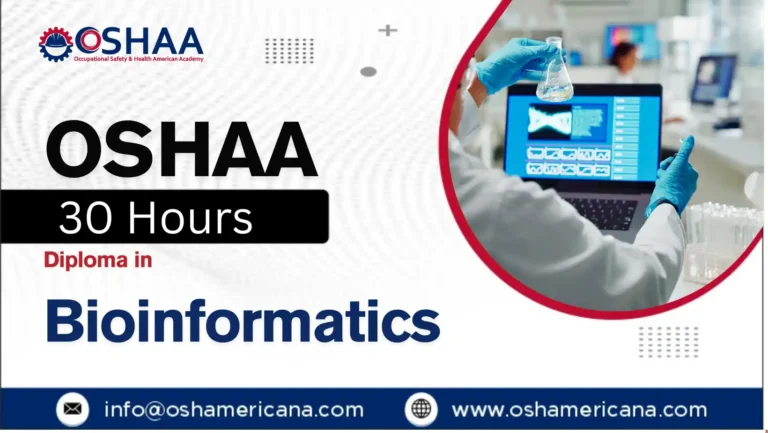Advanced Professional Diploma in QC Piping Inspection Excellence
The OSHAA 30-Hours Professional Diploma in QC Piping Inspector is a specialised qualification developed and awarded by OSHAA, a recognised awarding body dedicated to maintaining high standards in occupational training and technical education. This industry-oriented programme is designed to provide participants with the essential technical knowledge, practical skills, and regulatory understanding required to carry out effective quality control inspections of piping systems across diverse industrial environments.
This diploma is ideally suited for individuals currently working in, or aspiring to enter, roles related to piping inspection and quality assurance. It is particularly valuable for mechanical technicians, site engineers, supervisors, weld inspectors, and fabrication personnel who wish to strengthen their inspection capabilities and formalise their professional credentials. The course content focuses on real-world inspection practices, enabling learners to confidently identify defects, ensure compliance, and support project quality objectives.
With global industries placing increasing emphasis on quality assurance, safety compliance, and regulatory adherence, the demand for competent QC piping inspectors continues to grow. This diploma equips participants with the competencies needed to meet these expectations and perform effectively in high-pressure project settings. By combining technical theory with practical inspection insight, the OSHAA 30-Hours Professional Diploma in QC Piping Inspector supports the development of reliable professionals capable of contributing to safe, efficient, and compliant industrial piping systems.
OSHAA 30-Hours Professional Diploma in QC Piping Inspector
Study Units
Learning Outcomes
Introduction to QC Roles and Responsibilities in Piping Projects (2 Hours)
- Understand the key responsibilities of a QC piping inspector in industrial projects
- Recognise the role of quality control in ensuring project safety, efficiency, and compliance
- Identify the stages of piping inspection across fabrication, installation, and commissioning
- Become familiar with the communication flow within QA/QC teams and project management
Piping Materials, Components, and Fabrication Practices (3 Hours)
- Identify common piping materials and their mechanical properties
- Understand the functions of standard piping components such as flanges, valves, and elbows
- Gain insight into typical fabrication processes including cutting, welding, and fitting
- Assess how material selection influences system integrity and overall performance
International Codes and Standards: ASME, API, ISO (4 Hours)
- Interpret and apply ASME, API, and ISO standards in piping inspection activities
- Understand the relevance of international codes to piping fabrication and installation
- Evaluate workmanship and materials for compliance with global standards
- Navigate key sections of applicable codes during inspection and documentation
Welding Fundamentals and Visual Weld Inspection (6 Hours)
- Understand the basic principles of welding processes used in piping systems
- Interpret welding procedure specifications (WPS) and procedure qualification records (PQR)
- Identify visual welding defects and understand their causes and implications
- Perform basic visual inspection techniques to assess weld quality and acceptability
Non-Destructive Testing (NDT) Methods and Field Applications (4 Hours)
- Understand the principles and importance of non-destructive testing in piping QA/QC
- Identify common NDT techniques such as ultrasonic, radiographic, magnetic particle, and dye penetrant testing
- Determine appropriate NDT methods based on materials, weld type, and inspection requirements
- Interpret NDT reports and results to support defect detection and quality decisions
Reading and Interpreting Piping Isometrics and Layout Drawings (6 Hours)
- Develop proficiency in reading piping isometric drawings and layout plans
- Identify symbols, line numbers, weld joints, elevations, and material specifications
- Correlate drawings with on-site installation and inspection points
- Use drawings to plan inspections, trace piping routes, and verify compliance
Inspection Procedures During Fabrication and Erection (3 Hours)
- Conduct systematic inspections during fabrication, assembly, and site erection
- Verify alignment, fit-up, supports, and welding in line with project specifications
- Follow inspection checklists and hold points as defined in the inspection and test plan (ITP)
- Communicate inspection findings and coordinate with fabrication and construction teams
Identification and Classification of Common Piping Defects (2 Hours)
- Recognise common defects such as porosity, cracks, misalignment, undercut, and corrosion
- Classify defects based on severity and applicable inspection standards
- Understand root causes of defects and their impact on piping system performance
- Recommend corrective actions or rework procedures based on inspection outcomes
The OSHAA 30-Hours Professional Diploma in QC Piping Inspector offers participants a focused and industry-relevant qualification designed to enhance practical knowledge, inspection skills, and career progression in quality control roles within piping-related projects. Aligned with international standards and occupational practices, this course provides meaningful advantages across both technical and professional domains.
- Gain a professional qualification awarded by OSHAA, supporting career credibility in the QA/QC field
- Build a strong foundation in piping inspection processes across fabrication, erection, and testing stages
- Acquire in-depth understanding of international standards such as ASME, API, and ISO
- Develop the ability to read and interpret piping isometrics, layout drawings, and technical documentation
- Strengthen knowledge of welding inspection, defect identification, and visual assessment techniques
- Learn to apply key non-destructive testing (NDT) methods and interpret corresponding reports
- Improve accuracy in quality documentation, including WPS, PQR, and site inspection records
- Enhance readiness for field inspection tasks and quality reporting during construction and commissioning
- Increase employability in sectors such as oil and gas, petrochemical, power generation, and construction
- Support professional growth into roles such as QC inspector, QA/QC engineer, or quality supervisor
This course is designed to prepare participants for the quality-driven expectations of modern industrial environments, enabling them to contribute effectively to safe, compliant, and efficient piping systems.
The OSHAA 30-Hours Professional Diploma in QC Piping Inspector is designed for participants seeking to build or advance their career in quality control within piping-related industries. It is ideal for those who want to gain practical, standards-based knowledge in piping inspection, fabrication, and compliance.
This course is suitable for:
- Participants currently working in mechanical, piping, or construction environments who aim to move into QA/QC roles
- Quality control inspectors and technicians looking to formalise and expand their expertise
- Individuals involved in fabrication, welding, or piping installation seeking to enhance their inspection capabilities
- Engineering professionals responsible for site supervision, quality audits, or compliance reporting
- Participants preparing to work in sectors such as oil and gas, power plants, petrochemical facilities, and industrial construction







